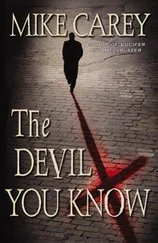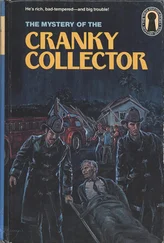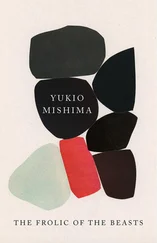‘Where is everyone?’ I asked. ‘It’s a weekday morning. Shouldn’t this place be humming?’
‘The official move is next week. There’s only a skeleton staff here right now.’
It was such an easy straight line that I didn’t lower myself to touch it.
‘Everything here,’ Gil said, warming up a little now that he was getting the chance to show off all these shiny toys, ‘is dedicated. These facilities only serve the MOU – we’re hands-off to the rest of the hospital.’
‘Sure,’ I agreed. ‘God forbid you get your CAT scanner all crowded out with sick people when you’ve got a new werewolf to play with.’
Gil shrugged, indifferent to my sarcasm. ‘We’re healing a deeper sickness, Castor,’ he said. ‘But by all means, you just sit up there on the moral high ground and watch the waters rise. Bring a picnic.’
I almost laughed out loud. It was J-J’s rhetoric, barely changed from the arguments I’d had with her before I walked out of here for what I thought was the last time. The end days were coming. Gwillam would call it Armageddon; J-J would call it a disequilibrum event, but they meant the same thing. The dead would fight the living for the top spot in Earth’s wobbly ecosystem, and it would be a fight that would leave the world we knew looking like New Orleans after Katrina. Laws are silent in times of war, Cicero said; J-J thinks they should shut up for the preliminary heats too. She can’t do her job with all that human rights garbage dinning in her ears.
I turned away from the door, my breakfast churning slowly and queasily in my stomach. Gil hadn’t said anything about the leg and arm restraints, or why they should be needed on an autopsy table. I didn’t bother to ask because I already knew the answer.
Part of the problem was that the law was still running to catch up with the way the world had changed. Vast edifices of legislation had been carved out over centuries to protect the rights of the living. Now we had the dead and the undead to worry about too, and the courts were barely scratching the surface of what that meant. If you died and then came back, either in the flesh or as a ghost, who owned your house, your money, your CD collection? Were you still married to the wife or husband you’d had before? Did you have the right to expect them to welcome you with open arms when you didn’t have a pulse any more? Could you give evidence in court? Maybe finger the guy who’d murdered you, or sue the doctor who’d botched your heart op?
The test cases were being brought, and the questions were being asked in the parliaments of the world. In a few years’ time, there might be all sorts of legal restraints on what someone like Jenna-Jane could get away with. For now, a loup-garou enjoyed all the legal protections that a lab rat does, and a zombie had the same civil rights as roadkill.
We descended to the ground floor. ‘This is mostly therapy and interview suites,’ Gil said.
‘Interrogation rooms,’ I translated.
‘If you like.’
I didn’t. But as we walked along the main drag, my death-sense picked up the faint echo of a familiar tune.
‘We take security pretty seriously,’ Gil was saying. ‘Especially here and in the basement levels. There are alarm pulls in every room and every twenty feet along the corridors. The CCTV hook-ups have a hundred-per-cent overlap, and they’re monitored in real time by a team of three. Or they will be, once we’re up and running. There are weapons lockers on this floor and the one above, equipped with Mace and tasers and pepper sprays.’
‘Who provides the muscle?’ I asked. ‘Does J-J order in? They look like Nazi stormtroopers.’
‘They’re not regular hospital security, if that’s what you mean,’ Gil grunted. ‘Use your sense, Castor. You know what we get coming through here. How long do you think the average retired store detective would last against a loup-garou ?’
He had a point, but again I was aware of what he wasn’t saying: that the nature of Jenna-Jane’s work called for more serious and more unscrupulous muscle than a regular security firm would be likely to countenance. Judging from the look of the guys I’d seen at the front desk, they straddled the bruised and tender line that separates private cops from mercenaries.
Gil was still talking – something about the locks and the pass codes – but his words were drowned out as that elusive sense became stronger with each step. Finally I stopped in front of a heavy windowless door with a keypad lock. A sign on the door read NO UNAUTHORISED ACCESS, and another, below that, WITH ESCORT ONLY.
Gil walked on, then looked back at me impatiently. ‘What?’ he said.
I pointed at the door. ‘I was thinking I might pop in and say hello,’ I said.
‘To who?’
‘To Rosie Crucis. This is where you’ve got her stashed, isn’t it?’
By way of answer, Gil walked back to join me and tapped the NO UNAUTHORISED ACCESS sign with the knuckle of his index finger.
‘So authorise me,’ I suggested.
‘Eat me,’ Gil counter-offered. That sounded like an impasse to me.
We walked on, rounded a few corners and found ourselves in a wider corridor. But the main drag ended in a huge vault-like metal door which at first glance seemed to have more hazchem warnings on it than the staff canteen at Sellafield. At second glance it was obvious that they weren’t hazchem warnings at all; they were wards of the pentagram variety, stamped onto steel, painted in high-contrast colours and riveted to the metal of the door. They were all stay-nots, carrying in a dozen dead languages their many playful variations on the theme ‘One more step and you’re deader than you already were.’
The door had a whole lot of locks too – a keypad like Rosie’s door, a card-scan lock and two high-end ASSA Abloys. Gil unlocked them one by one, then turned to me with his hand on the bare steel pull-bar that the door had by way of a handle.
‘Smell anything?’ he asked me, with a nasty smile on his face.
‘Like what?’ I asked.
‘Well, you were so spot on with Rosie,’ he said, ‘I thought you were going to say something.’ He swung the door open, and it hit me. Not a smell; that was just Gil’s way of saying we were in the presence of the dead, and the undead. From the dark space beyond the door a cacophony the like of which I’d never heard before rose up to assault my death-sense.
I took an involuntary step back, and then another, raising a hand in front of my face as though to ward off a physical assault. After the second step, the corridor wall jostled me in the back and there was nowhere else to go. Swallowing hard, I tried to cope with the madness, while Gil watched me with a certain satisfaction.
‘It takes you that way the first time,’ he said. ‘The second time too. Come and take a look.’
He walked ahead of me into the dark, not bothering to look back to see if I was following. It was a taunt, and a challenge. It cost me a real effort to walk into that space behind him, a bigger effort not to clap my hands to my ears in a futile attempt to block out the sounds that weren’t coming in via my ears at all.
We stood on a metal platform, our footsteps echoing like the thudding of a drum in a space much, much larger than a normal room. It was pitch black until Gil threw a lever on the wall just beside the door, and then a couple of dozen spots came up, stabbing down from above us to illuminate a vast cement-grey bunker.
Gil crossed to a railing, leaned against it nonchalantly and looked out. I followed after a couple of seconds, my head still so full of thunderous dissonance that I could barely isolate Gil’s voice – the only real sound in the psychic tumult.
‘This is all new,’ he said.
Читать дальше










